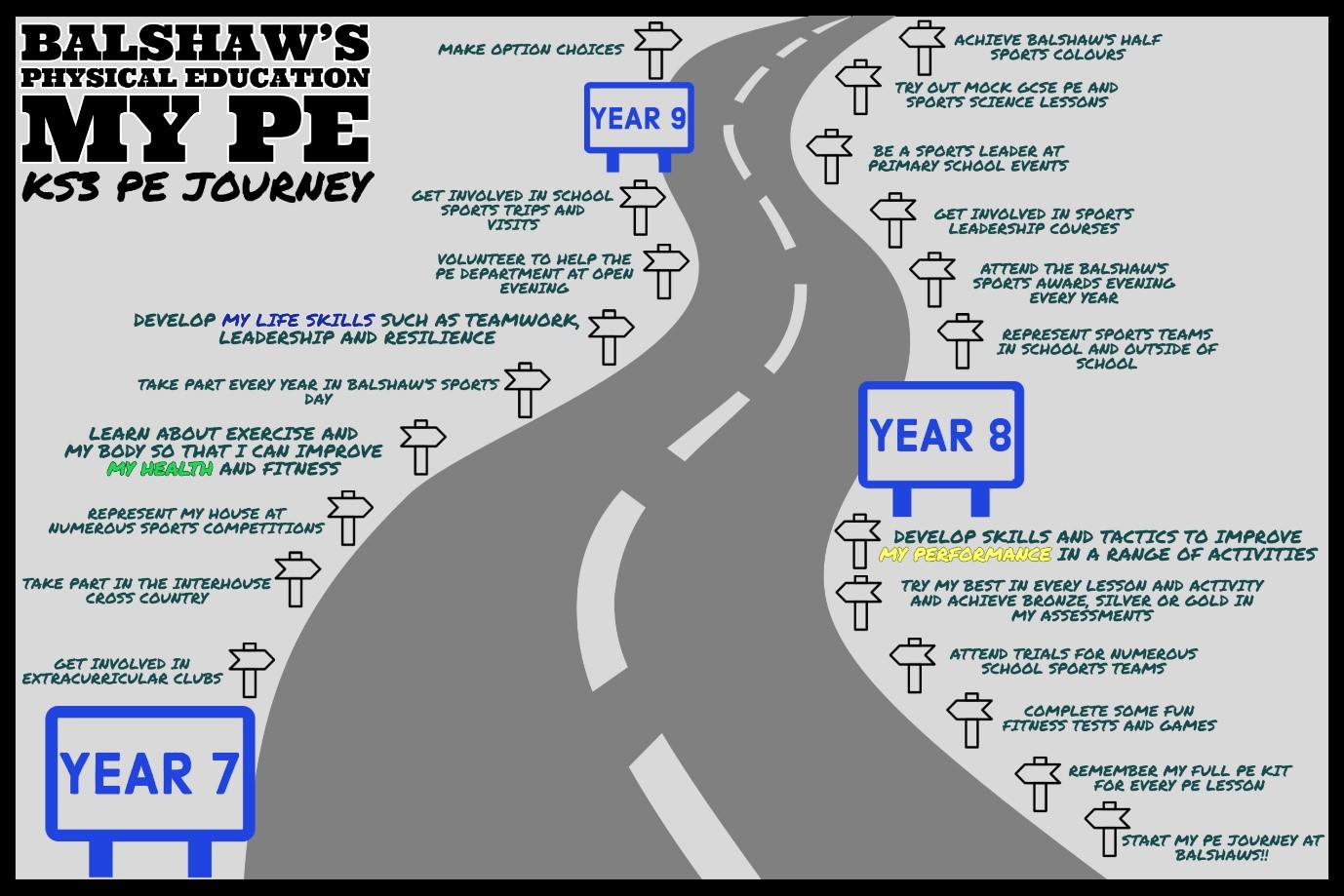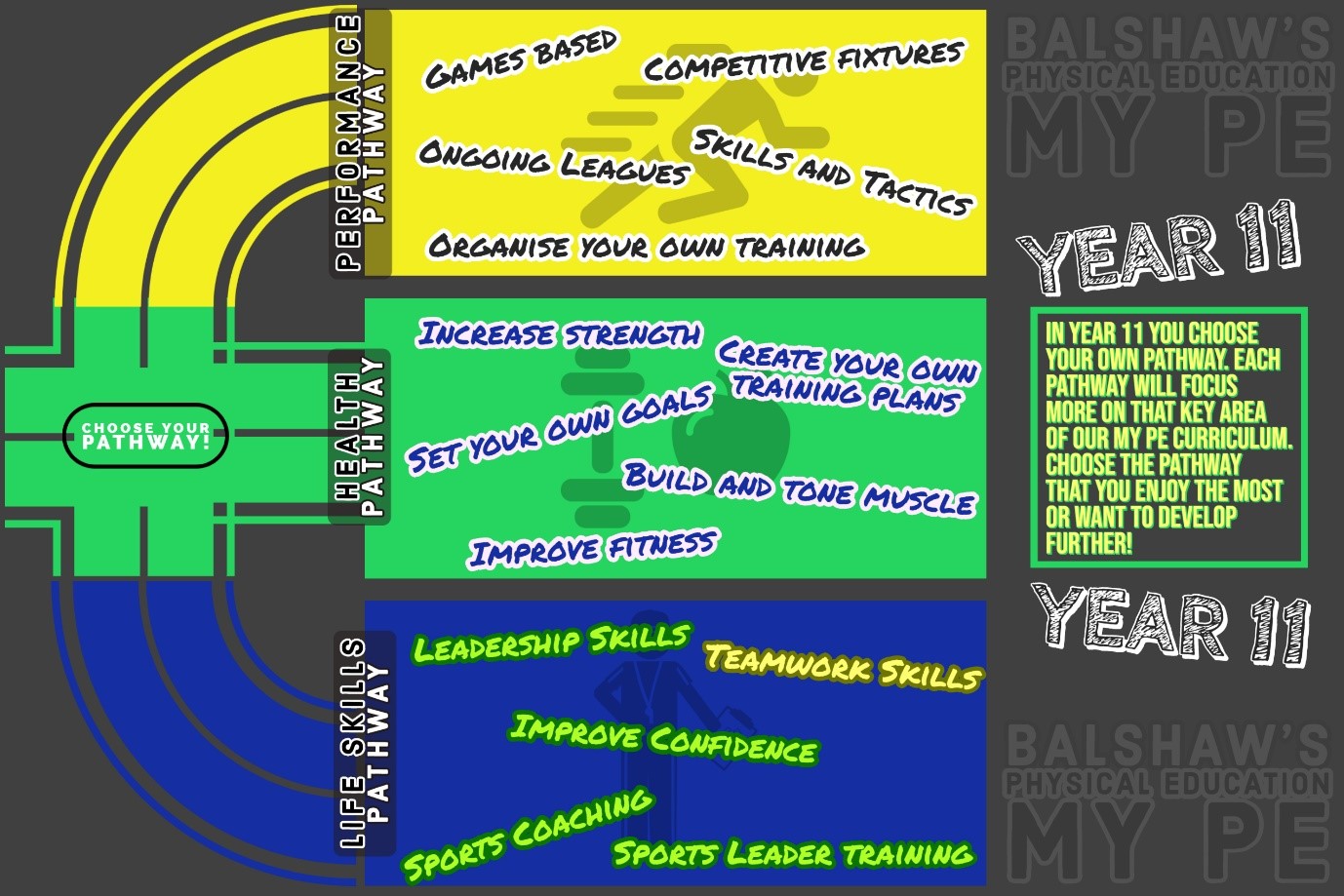Physical Education Staff
For more information about the Subject curriculum, please contact Mr A Schultz the Curriculum Leader.
- Mr A Schultz - Curriculum Leader
- Mr A Holland - Assistant Headteacher (Curriculum)
- Mrs B Jackson
- Mrs C Leathard - (Head of Cuerden House)
- Mrs D Lupton - (Head of Clayton House)
- Mr J O'Neill - Sport Technician
- Mr A Shuttleworth
Sports Facilities
We have the following superb facilities at Balshaw's:
- Full size floodlit 3G astroturf all weather pitch
- Large fitness suite containing multiple CV machines and weights machines
- Large fully equipped dance studio
- Gym area
- 3 x netball courts
- 3 x tennis courts
- Extensive playing fields
Physical Education Curriculum Implementation
Sports News and Clubs
To view some of our recent Sports news then please select this link and you can find details of Sport Clubs here
Year 10/11 PE Revision Materials
30 Day GCSE Physical Education Challenge
Balshaw's PE Journey
You can see the Balshaw's PE Journey below or here.
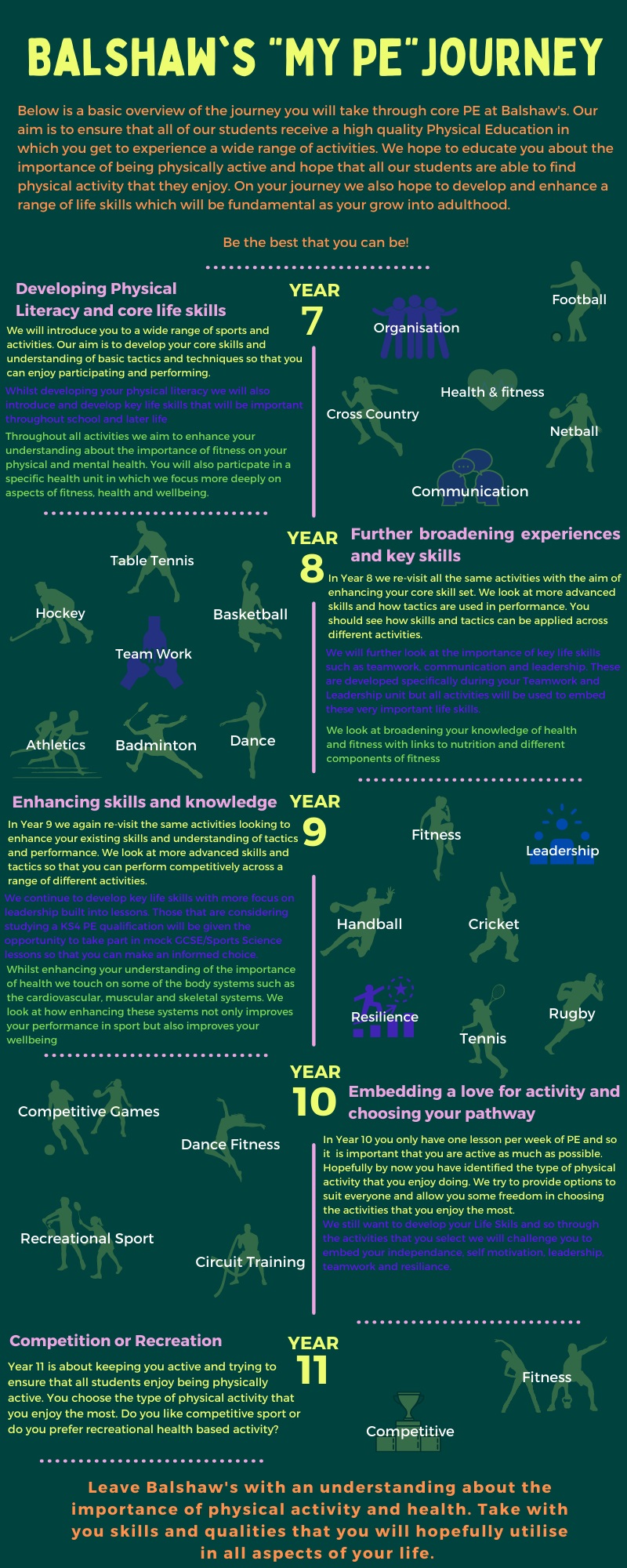
Intent of our Physical Education Curriculum
Our PE Curriculum aims to provide opportunities for all students to become physically confident in a way which supports their health and fitness. Our main aims are that all students enjoy taking part in physical activity, that they take part in competitive sport and that they develop knowledge, skills and qualities which will benefit them in the world beyond school.
We aim to inspire students of all abilities to strive to achieve their personal best, in a broad range of sporting activities, allowing students to compete and develop in a safe and supporting environment. Students should be able to develop their strengths and be able to identify their weaknesses, not being afraid to fail as they aim to improve.
Our curriculum should allow all students to advance their physical skills but also embed key values such as sportsmanship, fairness and respect. Students should develop their teamwork skills and be able to work with others to achieve a common goal. We aim to provide opportunities for students to grow their leadership skills and build their resilience for a world that is changing at an increasing pace.
We are committed to ensuring that all students leave Balshaw’s with the knowledge that being physically active, on a regular basis, is vital for health and well-being and that all students have the confidence to continue to take part in competitive or recreational sport for the rest of their adult lives.
Implementation of our Physical Education Curriculum
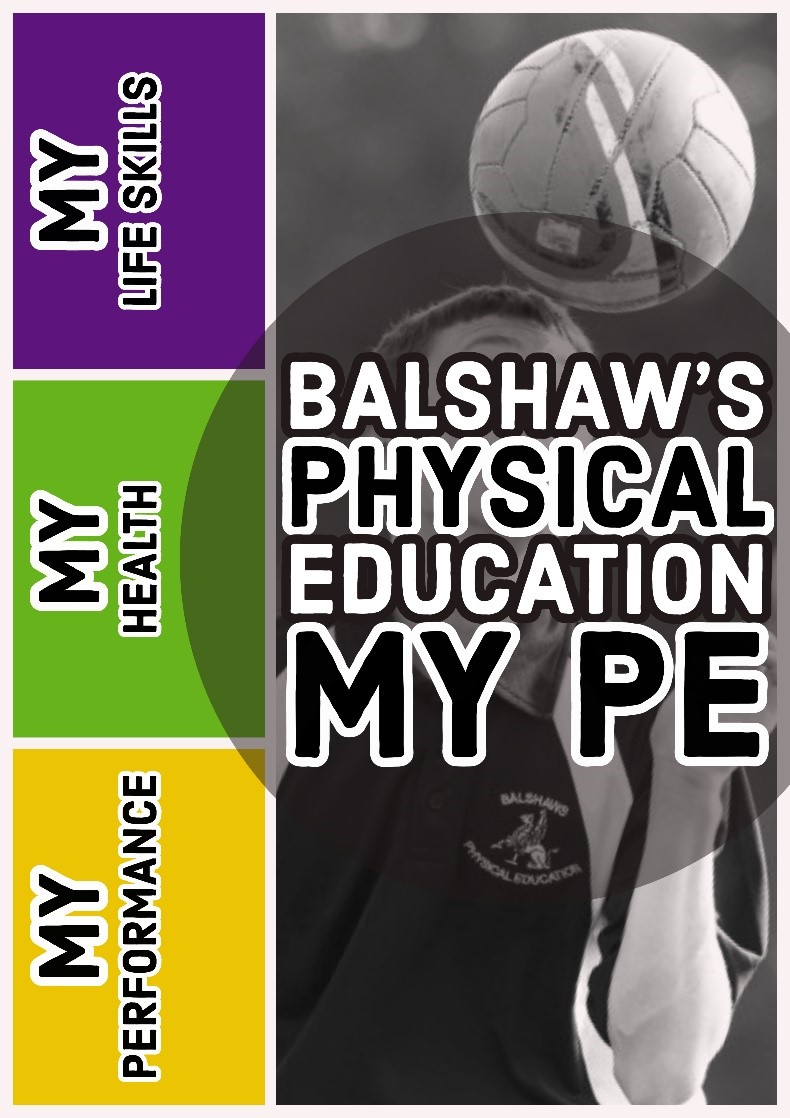
Our Physical Education curriculum is branded as MY PE and we hope that each student sees their journey through our curriculum as a personal development experience. Our curriculum is divided into three main areas:- My Performance, My Health and My Life Skills. Each of the areas aim to develop different aspects of each student.
My Performance – Students will experience a wide range of different sporting activities and develop their skills, knowledge of rules, development of tactics and overall performance levels in a supportive environment.
My Health – Students will develop their knowledge and understanding of the importance of health, fitness and well-being. Through lessons in our brilliant school fitness suite or health focused lessons in other areas, each student will develop both practical and theoretical knowledge which will be important throughout their life.
My Life Skills – Students will develop key life skills required in all aspects of life beyond our school. Skills or qualities such as teamwork, leadership, communication and resilience are just some of the life skills which sport and PE can really develop in young people. Students will develop these skills throughout all aspects of our curriculum however we also focus on this through our Teamwork and Leadership units.
Our KS3 PE journey, below, outlines some key things that students in Year 7, 8 and 9 should get involved with.
Our KS3 Programme of Study poster highlights the main activities that students in year 7, 8 and 9 will be involved in through the year.
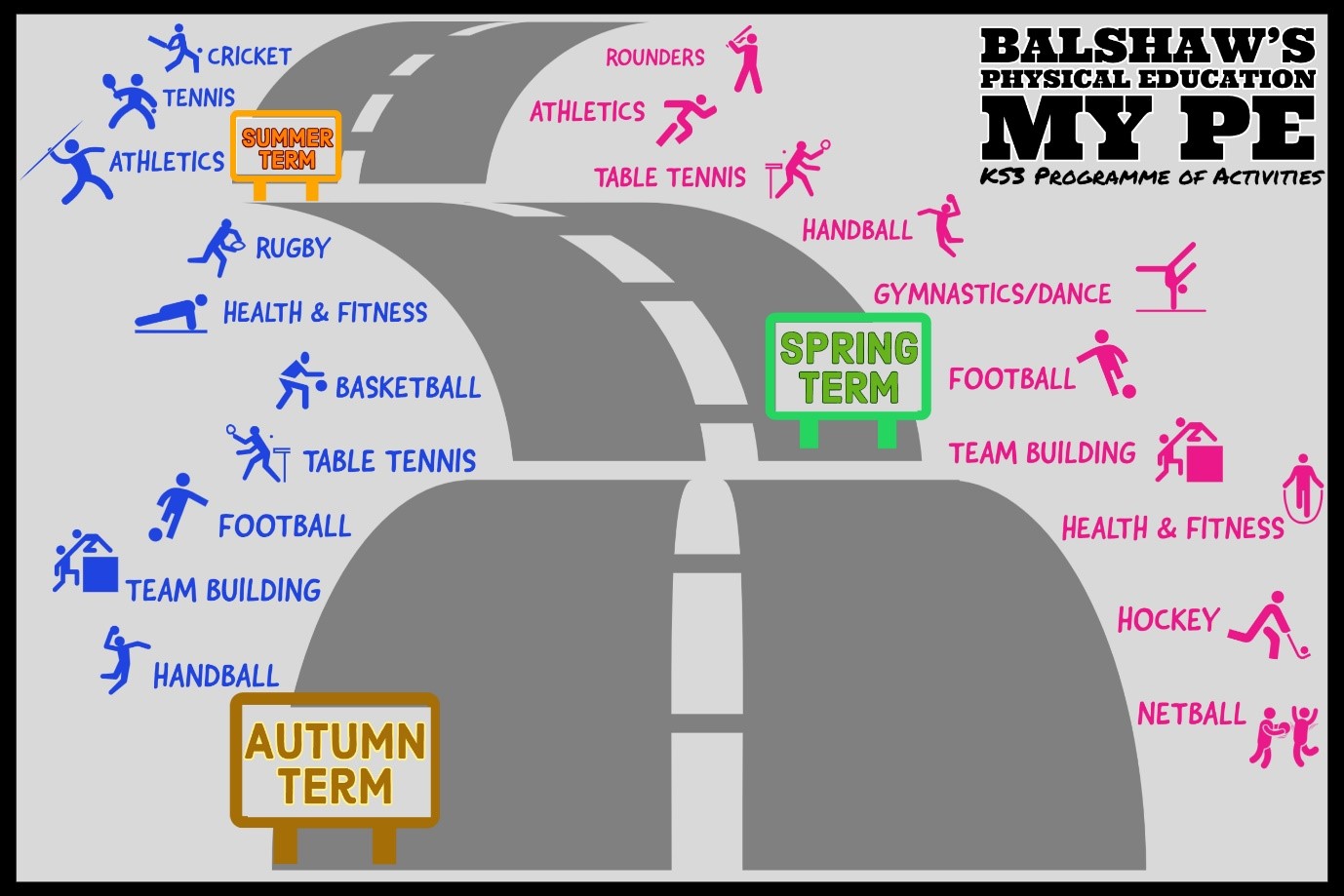
Throughout all of our activity units our message to students is always to simply try your best! Nothing makes us happier than seeing a student, irrespective of perceived ability, trying their upmost to improve. Everything is about achieving your personal best.
Within PE we still assess our students like all other subjects but we hope that all students can use our assessment as a way of understanding how and what they can improve in a physical context. All of our activities have pupil friendly assessment posters, like the one below, which allow students to identify areas they would like to aim to improve.
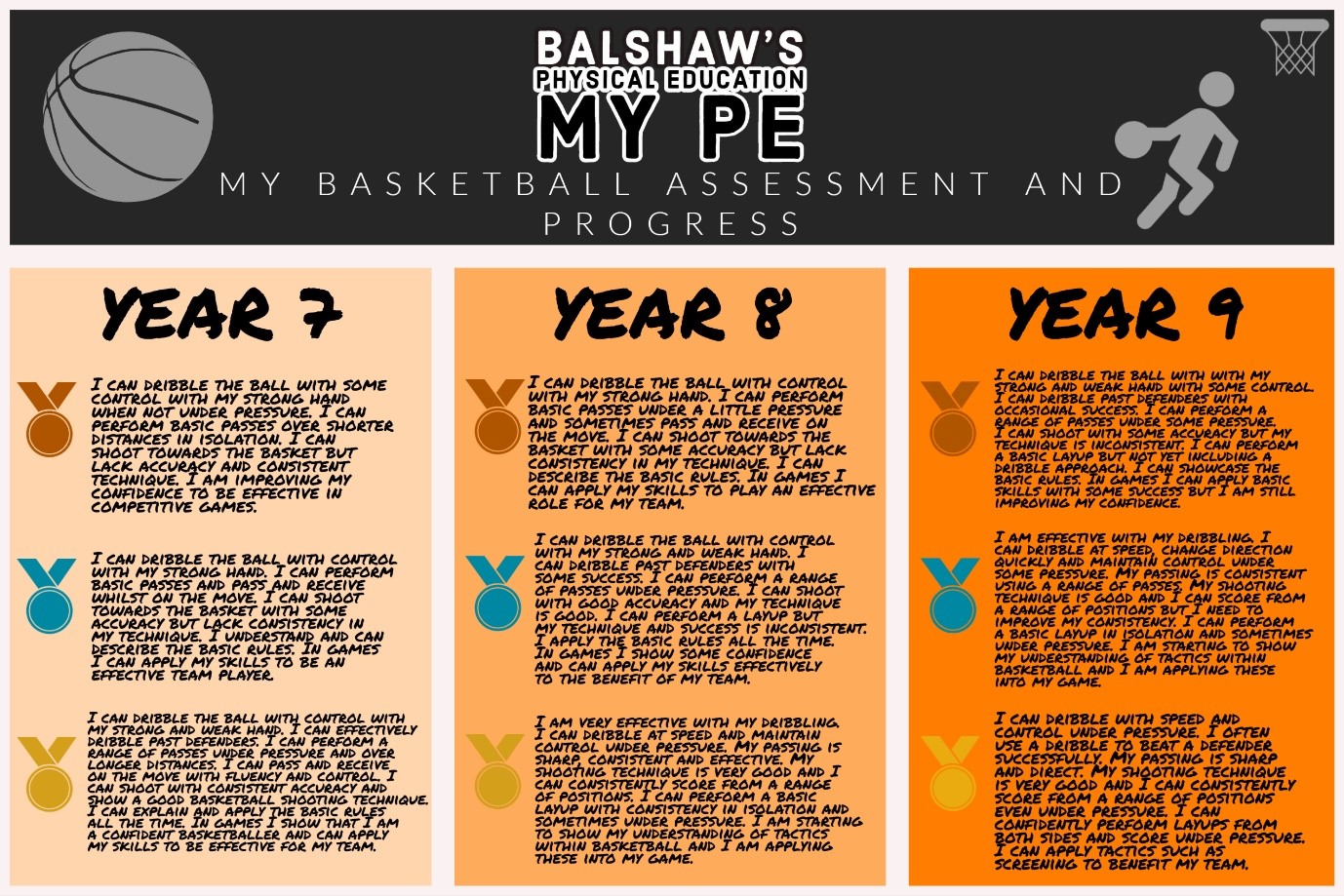
Key Stage 4 Physical Education
In Year 10 and 11 all students continue to receive core PE lessons and they continue following our MY PE curriculum model.
In Year 10 students still take part in the same wide range of activities but each unit or sport has a focus on Performance, Health and Life Skills.
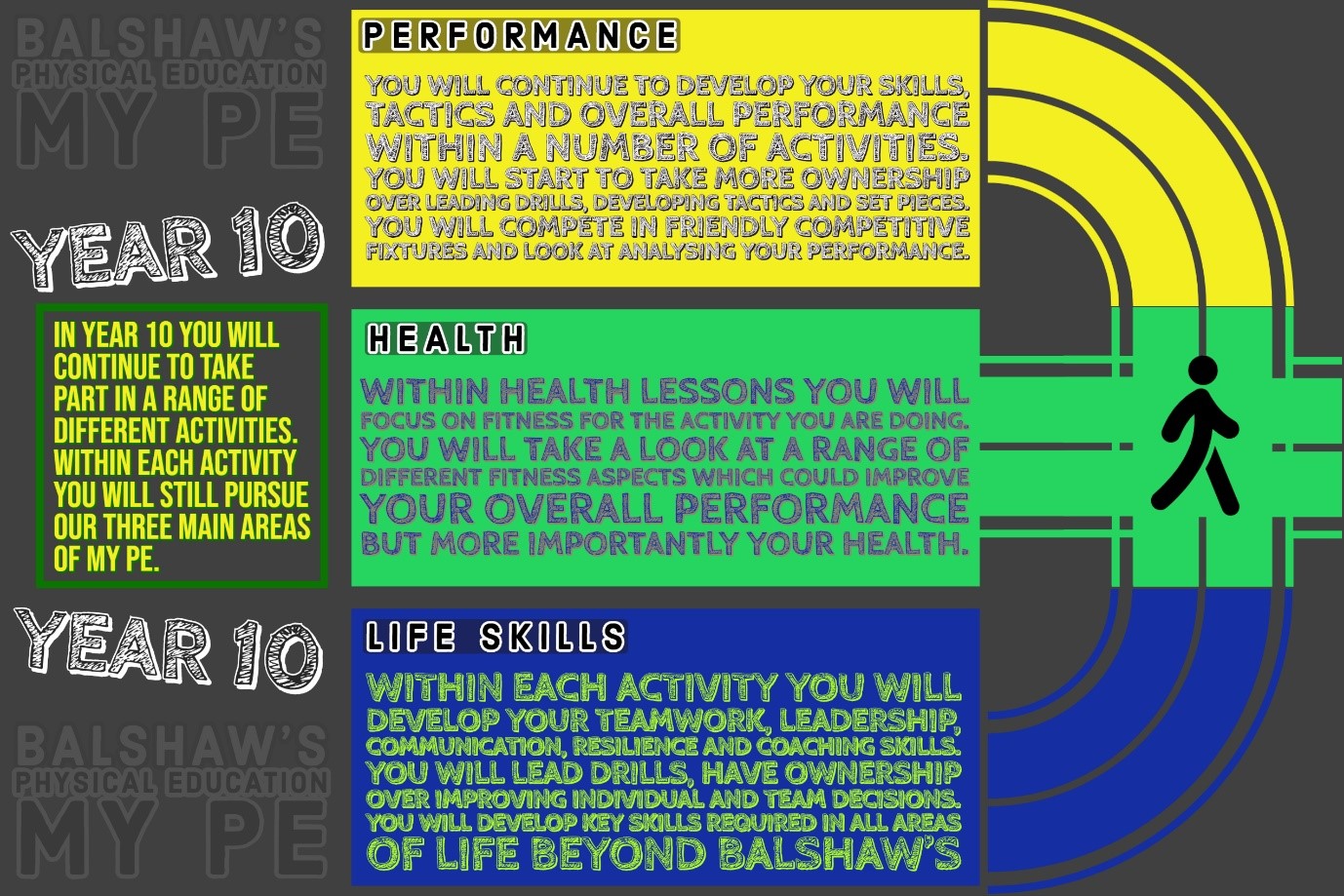
In Year 11 we begin to give students more flexibility to choose their own pathway and therefore the activities they want to take part in or enjoy the most. We feel it is very important at this stage for students to be able to choose the pathway they enjoy the most if they are going to then go on to enjoy being physically active into adulthood.
Key Stage 4 Physical Education Option Qualifications
All students in Key Stage 4 will receive a non-examined core PE curriculum of two lessons per fortnight. In addition students can opt to study GCSE PE. All students in Year 9 are given the opportunity to participate in 4 weeks of mock GCSE PE lessons before making their option choices so that they gain a full understanding of the content and commitment needed when studying GCSE PE. Those students who opt to study one of our qualifications will receive five extra lessons on top of their core PE timetable allocation.
GCSE Physical Education - Year 10 (AQA)
Specification at a glance
This qualification is linear. Linear means that students will sit all their exams and submit all their non-exam assessment at the end of the course.
Subject content
1. Applied anatomy and physiology
4. Use of data
7. Health, fitness and wellbeing
Assessments
Paper 1: The human body and movement in physical activity and sport |
|---|
|
What's assessed
|
|
How it's assessed
|
|
Questions
|

Paper 2: Socio-cultural influences and well-being in physical activity and sport |
|---|
|
What's assessed
|
|
How it's assessed
|
|
Questions
|

Non-exam assessment: Practical performance in physical activity and sport |
|---|
|
What's assessed
|
|
How it's assessed
|
|
Questions
|
For further information about the AQA GCSE PE course please go to GCSE Physical Education 8582 | Specification | AQA
GCSE Physical Education - Year 11 (OCR)
Content overview
Component 01: Physical factors affecting performance
Students explore how parts of the human body function during physical activity and the physiological adaptations that can occur due to diet and training. They also develop skills in data analysis, and an understanding of the principles of training, why we train in different ways and how training plans can be made to optimise results.
There are two topics:
- Applied anatomy and physiology
- Physical training
Component 02: Socio-cultural issues and sports psychology
Students develop their knowledge of the social-cultural and psychological influences on levels of participation in sport, and also how sport impacts on society more broadly. This includes the individual benefits to health, fitness and well-being of participating in physical activity, as well as the influences of commercialisation, sponsorship and the media.
There are three topics:
- Socio-cultural influences
- Sports psychology
- Health,fitness and well-being
Component 03: Performance in physical education
Students are assessed in performing three practical activities and one performance analysis task. In the practical performance, they demonstrate effective performance, the use of tactics or techniques and the ability to observe the rules and conventions under applied conditions. They are also required to demonstrate their ability to analyse and evaluate their own performance to produce an action plan for improvement.
For further information about the OCR GCSE PE course please to go https://www.ocr.org.uk/qualifications/gcse/physical-education-j587-from-2016/
Related News
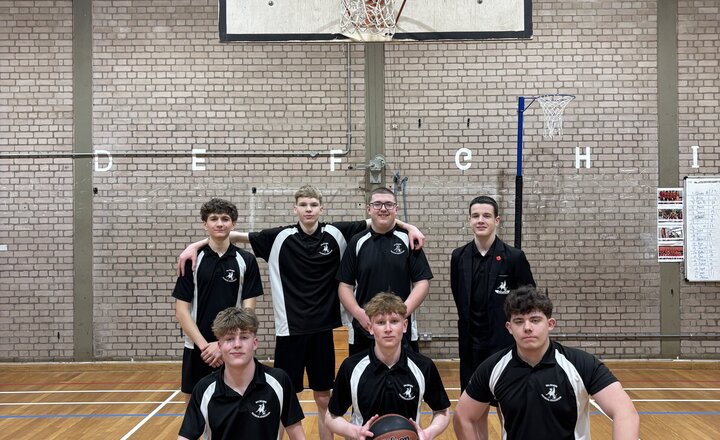
U16s Boys' Basketball Team Progress
.png)

